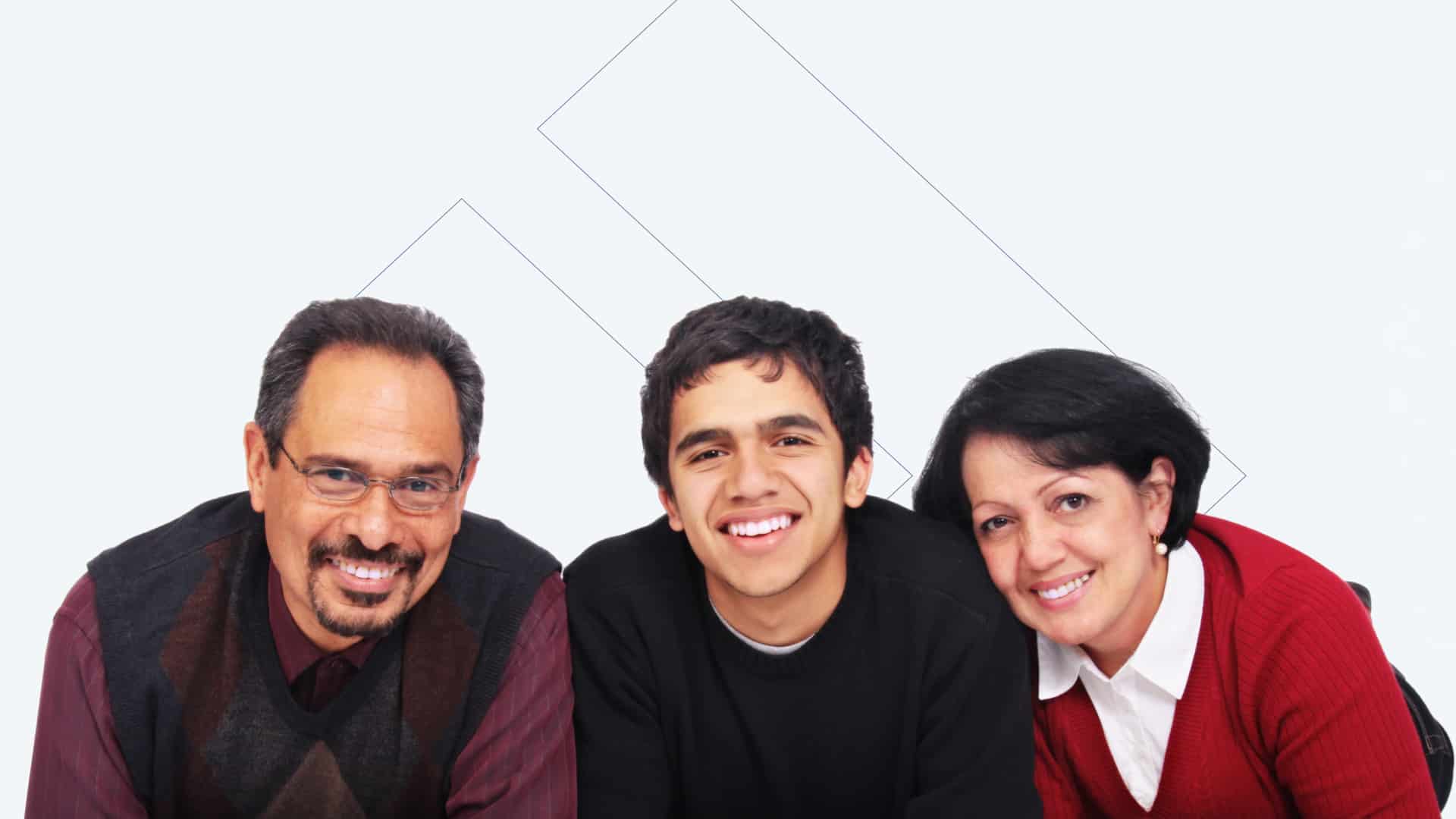I am a British citizen but not a tax resident of the country. I don’t spend more than 183 days in the UK and don’t have a full-time job. I’m living off my regular dividends from the company where I am a shareholder.
In 2016, my bank in London required a tax residency number due to international legislation regarding the exchange of information between banks and tax authorities.
I definitely didn’t want to get a tax number in the UK. Considering my earnings, I would pay 30% of dividend income taxes.

Oliver, 42 years old
Company shareholder from London
Clients’ names and photos have been changed
Oliver has been running a well-established business for 12 years. Then he quit as a manager and started to travel to Europe and the US.
He formed his capital a few years ago, and most of his income accounted for dividends. The amount was sufficient to cover all costs Oliver had to bear travelling. At the same time, he was not a tax resident of any country, which became his primary problem.
The automatic exchange of information on new accounts and existing large accounts of individuals between banks and tax authorities of countries should start by the end of September 2017. For this reason, Oliver’s bank asked him to provide his tax residence.
Refusal to provide such information entails terminating the banking service agreement with customers. This requirement results from international agreements designed to help tax authorities address tax evasion.
Oliver didn’t want to become a taxpayer in the UK and pay taxes at a 30% rate. He tried to find a country with less or zero dividend tax rates and had a short time to do this.
Choosing the country of second citizenship with a licensed agent
He contacted Immigrant Invest to know if there were any ways to obtain residency in the country with low or zero taxes. Oliver found it important to obtain tax residency while keeping the status quo concerning paying taxes. He did not want to be bound by additional tax liabilities.
Immigrant Invest lawyers told Oliver that the Caribbean countries have just cancelled several taxes on:
-
gifts,
-
inheritance,
-
property,
-
income from foreign sources.
To be required to file a tax return in another country, he needed to live there for more than 183 days.
Oliver could stay in the Caribbean for up to 90 days with a UK passport. We told him there are investment options to obtain citizenship of St Kitts and Nevis, Antigua and Barbuda, Grenada, St Lucia, and Dominica, to stay legally without time limits.
Oliver became interested in programs offered by countries of the Caribbean. The most attractive factors were their availability, relatively small investments and opportunities for tax optimisation.
All five Caribbean programs have similar conditions — fast application approval times, options for investing in government funds and real estate, and the size of the minimum contribution.
Caribbean investment options
The application process does not need a direct presence in the Caribbean, and there is no residence requirement. Furthermore, all paperwork takes only 4—6 months, which suited Oliver ideally.
All Caribbean programs met Oliver’s budget and passport tax benefits. However, he wanted to return the investment — this option is possible when buying real estate.
Having analysed his situation, we offered Oliver citizenship by investing in Dominica’s economy. The country’s tax residents don’t pay taxes on dividends from other countries at all. Getting a tax number is simple: it takes about two weeks and doesn’t require long-term living in the country before obtaining it.
Oliver chose the option with a refundable investment — buying real estate in Dominica. He is entitled to sell the house and get back invested funds in 5 years.

Foreigners are allowed to buy properties in Dominica without restrictions. Purchase of pre‑approved real estate leads to obtaining second citizenship under the Dominica investment program
What was the procedure for obtaining a Dominica passport?
1. Preliminary Due Diligence. Immigrant Invest lawyers conduct a confidential background check to detect potential risks that could lead to the application being rejected. The Immigrant Invest team includes certified Anti Money Laundering Officers familiar with all the nuances of the Due Diligence procedures.
The check didn’t reveal any red flags in personal, social and professional activities in Oliver’s life.
2. Preparing documents. Immigrant Invest helped collect a package of documents and letters of reference and fill out questionnaires.
Oliver collected the following documents:
-
International passport.
-
Birth certificate.
-
Questionnaire for a program participant.
-
Documents confirming the investor’s income.
-
Documents confirming there was no criminal record.
-
Higher education diploma.
-
Medical certificate.
Immigrant Invest lawyers submitted documents and helped to choose real estate remotely. At that stage, Olver paid Due Diligence fees.
3. Choosing a property. The minimal amount of Dominica real estate investment is $200,000. The investor chose shared ownership in the hotel. The cost of the share was $220,000.
All facilities to participate in the citizenship program must be approved by the Dominica Government. Oliver сoncluded a preliminary agreement and paid 10% of its cost to reserve an object.
Examples of properties in Dominica
4. Sending documents for Due Diligence. The Dominica Citizenship by Investment Unit (CBIU) has accepted the documents. They started Due Diligence checks, which took about three months. After that, they filed papers for final processing.
We gathered all the necessary documents for Oliver and filed an application enabling him to participate in the Dominica CIP. The documents were required to pass Due Diligence checks, which are mandatory in all Caribbean countries.
5. Approving application. Three months later, Immigrant Invest received a positive response about Oliver’s participation in the investment citizenship program. Approval of the program is the basis for the transfer of investments.
6. Investment payment. Once the Due Diligence checks were successfully completed, Immigrant Invest lawyers prepared documents for fulfilling investment options. Oliver transferred his investment to the escrow agent’s account with the legal support of our specialists.
7. Getting passports. The CBIU printed the passport and naturalisation certificate when the bank confirmed the investment. Oliver received his Dominica passport with a courier, so there was no need to travel to the country.
Oliver’s expenses when choosing the option of buying a share in real estate included the cost of the object, the Due Diligence check, and the state and courier fees.
5 months and $253,111 were needed for Oliver to obtain Dominica citizenship
Signing an agreement between Oliver and Immigrant Invest
Preliminary Due Diligence check
Choosing an investment property
$22,000 — 10% of the property cost under a reservation agreement
Preparing and sending documents
Due Diligence by Dominica CBIU
$7,500
Application approval
Payment for investments and ownership registration
$198,000 $25,000 — a state fee
Issuing a passport and a naturalisation certificate
$611
Getting a passport by courier
Obtaining Dominica tax residency
The registration process with Dominica tax authorities consists of three steps:
-
Opening a bank account by providing an address in Dominica.
-
Getting a tax ID.
-
Receiving a Tax Code.
After receiving the passport, Oliver came to Dominica for registration before getting a tax ID. You do not need to live in Dominica for more than 183 days at the registration stage. But to become eligible to pay taxes in Dominica, it’s obligatory.
Oliver was ready to spend half a year on an exotic island. Immigrant Invest lawyers helped Oliver to rent a residential villa. After that, we applied to the local bank to open an account and provided Oliver’s Caribbean passport and address in Dominica.
Oliver could transfer money to rent a villa from his bank account in Dominica. He submitted a rental agreement and Caribbean passport to the Dominican IRS to receive a Tax ID.
Obtaining the Tax Code was the final step to gaining tax residency. The Dominica tax office issued the code upon Oliver’s request on their website.
The process was straightforward and took Oliver about a couple of weeks.
Benefits after getting Dominica citizenship and tax ID
Besides obtaining a passport and tax ID, the Immigrant Invest lawyers helped Oliver get a social card, SIM card and driving licence. Now he is living on the island to maintain Dominica tax residency. As a full-fledged citizen, he explores the region by car or on cruise tours.
Oliver provided his bank in London with the documents necessary to confirm his tax residency, including a tax code certificate and rental agreement.
Immigrant Invest is a licensed agent for government programs in the European Union and the Caribbean.

















